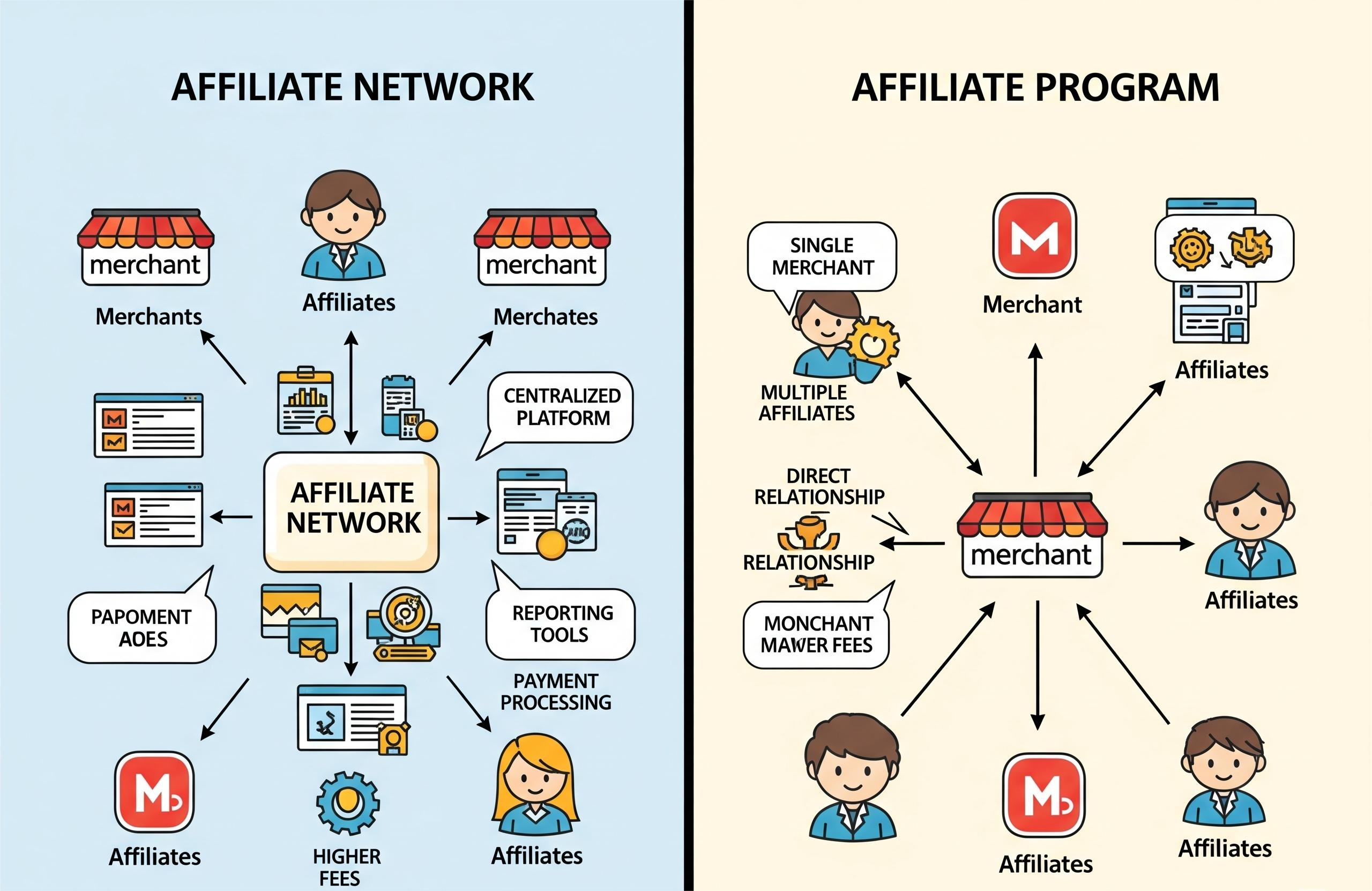
Affiliate Network Vs Affiliate Program: Which To Choose?
Introduction
Affiliate marketing continues to be one of the most effective and scalable ways to grow online revenue. As businesses and marketers dive into this performance-based model, a key question arises—should you join an affiliate program or an affiliate network?
While both offer opportunities to generate income through referrals and sales, the structure, benefits, and management style of each differ. In this blog, we’ll break down the difference between affiliate programs and affiliate networks, highlight their pros and cons, and help you decide which one aligns best with your goals in 2025.
What is an Affiliate Program?An affiliate program is a brand-managed system where companies recruit individual affiliates (publishers, influencers, or bloggers) to promote their products or services.
Each affiliate is given a unique tracking link and earns a commission for every sale or action completed through that link.
Examples:-
Amazon Associates
-
Shopify Affiliate Program
-
Bluehost Affiliate Program
An affiliate network acts as a third-party platform that connects multiple merchants with a large pool of affiliates. Instead of managing everything in-house, brands list their affiliate offerings on the network, while affiliates gain access to several campaigns under one login.
Examples:-
ShareASale
-
CJ Affiliate (Commission Junction)
-
Rakuten Advertising
-
Impact
Pros:
-
Full control over branding, payouts, and policies
-
Lower long-term cost
-
Builds direct affiliate relationships
Cons:
-
Requires manual management
-
Limited reach if not marketed well
-
Setup requires technical tools
Pros:
-
Access to thousands of potential affiliates
-
Faster onboarding
-
Secure, trustworthy payment systems
Cons:
-
Higher fees and commissions
-
Less control over campaign rules
-
Competitors may exist within the same platform
-
You're a small or mid-sized brand seeking full control
-
You want to build exclusive, long-term relationships with affiliates
-
You’re comfortable managing tools like tracking, payouts, and communication
-
You want fast access to a wide affiliate base
-
You prefer a ready-made infrastructure
-
You’re scaling quickly and need automation
Pro Tip for 2025: With the rise of AI-driven analytics, influencer micro-targeting, and performance-based attribution models, hybrid approaches (running your own program while also listing on a network) are becoming increasingly popular.
ConclusionWhether you're a brand launching your first affiliate campaign or an affiliate choosing where to invest time, understanding the difference between affiliate networks and affiliate programs is crucial.
In 2025, the right choice depends on your business model, marketing goals, and resources. Evaluate your current reach, technical capacity, and budget—then choose the model that will deliver long-term performance and scalability.






